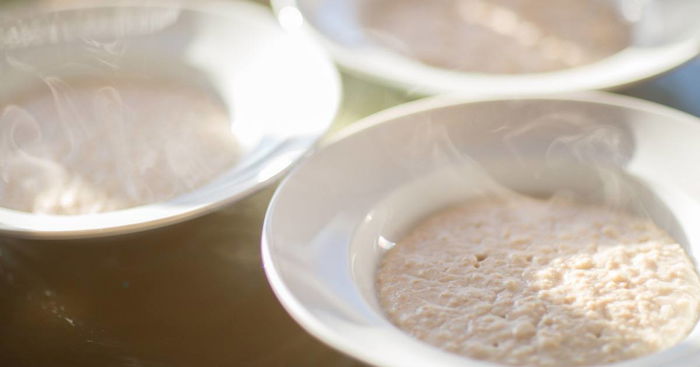[foxdark]
[Can A 2 Month Old Baby Eat Porridge?]

Executive Summary

Introducing solid foods to your baby is a significant milestone, and porridge is often considered a good starting point. However, introducing solid foods too early can be harmful, and two months is generally too young. This article will explore the safety and suitability of porridge for a 2-month-old, examining the risks, benefits, and guidelines for introducing solids.

Introduction
As a parent, you might be eager to introduce your baby to new flavors and textures. Porridge, with its creamy consistency and easily digestible nature, can seem like an ideal first food. However, it’s crucial to understand that every baby develops at their own pace, and introducing solids before the recommended age can lead to health complications.
Is it safe for a 2-month-old to eat porridge?
No, it’s not safe for a 2-month-old to eat porridge. The American Academy of Pediatrics (AAP) recommends delaying the introduction of solid foods until around 6 months of age. Babies under 6 months are still developing their digestive systems, and their immune systems are not mature enough to handle solid foods.
What are the risks of introducing solid foods too early?
Introducing solid foods too early can have several risks for your baby:
- Choking Hazard: Babies at this age lack the necessary coordination to swallow solid foods safely, increasing the risk of choking.
- Allergic Reactions: Introducing allergenic foods too early can increase the risk of developing food allergies.
- Digestive Issues: A baby’s digestive system is still developing, and introducing solids too early can lead to digestive problems like diarrhea, constipation, and gas.
- Nutritional Deficiencies: A baby’s primary source of nutrition should be breast milk or formula, and introducing solids too early can lead to nutritional deficiencies.
When should I start my baby on solid foods?
The AAP recommends starting solid foods around 6 months of age. This is when:
- Your baby can sit with support: This indicates better head and neck control, reducing the risk of choking.
- Your baby shows interest in food: This is evident when they try to reach for your food or watch you eat with interest.
- Your baby has good tongue control: This enables them to move food to the back of their mouth for swallowing.
What are the benefits of introducing solid foods at the right time?
Introducing solid foods at the right time provides several benefits for your baby:
- Exposure to new flavors and textures: This helps your baby develop their taste buds and learn to enjoy different foods.
- Development of motor skills: Learning to chew and swallow solid foods helps develop your baby’s fine motor skills.
- Improved digestive health: Introducing solids at the right time helps strengthen your baby’s digestive system.
- Preparation for a healthy diet: Introducing solids gradually sets the stage for a diverse and healthy diet later in life.
What are the best first foods for my baby?
Iron-rich foods are generally recommended as first foods:
- Iron-fortified cereal: A good source of iron, this is often a starting point for solids. Choose a cereal with no added sugar or salt.
- Pureed fruits: Fruits like bananas, applesauce, and pears are good sources of vitamins and minerals.
- Pureed vegetables: Vegetables like sweet potatoes, carrots, and peas are nutrient-rich and offer variety in flavor.
- Pureed meats: Pureed meats like chicken, turkey, or beef provide a good source of iron and protein.
How do I introduce solids safely?
Introducing solids safely involves a few key steps:
- Start with small amounts: Offer just a teaspoonful of food at first and gradually increase the amount as your baby gets used to it.
- Offer food one at a time: This helps identify any allergies or intolerances.
- Introduce new foods one at a time: Wait a few days between introducing new foods to monitor for any reactions.
- Be patient and persistent: It may take several tries for your baby to get used to new flavors and textures.
Conclusion
Introducing solid foods to your baby is an exciting milestone, but it’s essential to follow the recommended guidelines. While porridge can be a nutritious and appealing food for babies, it’s not appropriate for a 2-month-old. Introducing solid foods too early can pose risks to your baby’s health. By waiting until around 6 months of age and following a safe and gradual approach, you can ensure that your baby enjoys the benefits of solid foods while minimizing any potential risks.
Tags
- baby food
- porridge
- first foods
- introducing solids
- baby development